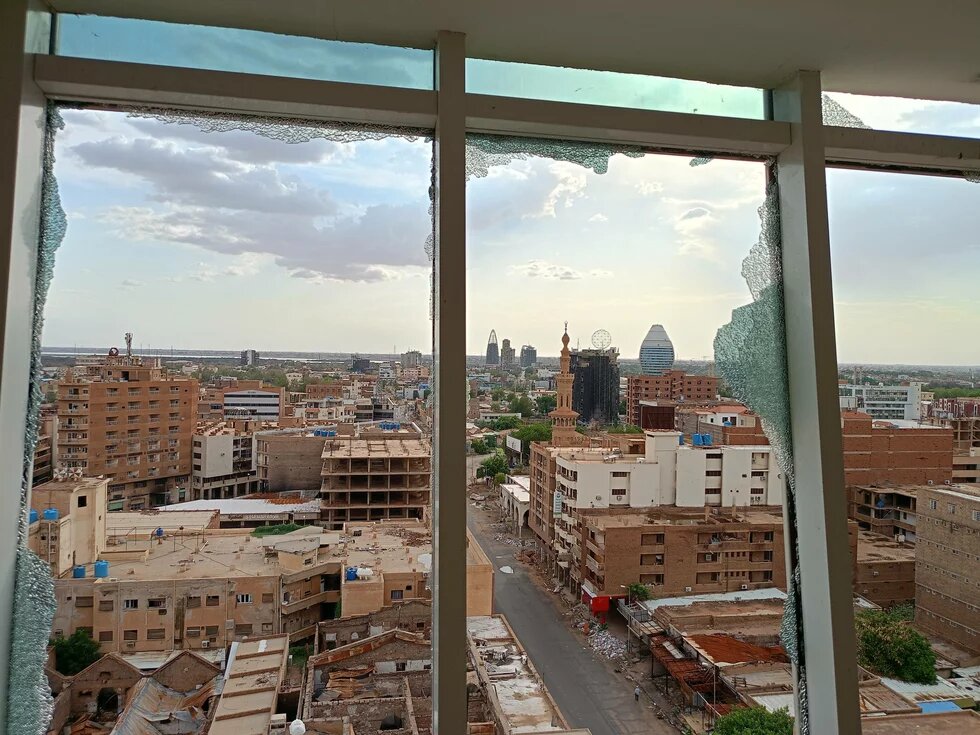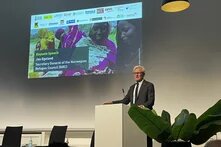In the conflict in Sudan, diplomatic efforts are focusing too heavily on the two main warring parties, the SAF and RSF, criticize Ulf Terlinden from the Böll Foundation and Ahmed Kodouda from the Impact Policy Group. A peace process without the participation of civilian actors is doomed to failure.

Since the beginning of the Sudanese war in April 2023, diplomatic efforts have focused on bringing the two main warring parties – the Sudanese Armed Forces (SAF) and the Rapid Support Forces (RSF) – to the table. The approach so far is that the "men with the guns" should agree on humanitarian access and a ceasefire before discussing Sudan's political future. However, the nature of the warfare – with an estimated 150,000 deaths so far – is making mediation massively more difficult and has led to the biggest humanitarian crisis in the world. 19 million children are unable to go to school and three-quarters of the country is dependent on humanitarian aid. There will be no "military solution." Germany and the EU have an interest in overcoming the crisis by civilian means.
This conflict is not simply between two parties. In 2021, the SAF and RSF jointly overthrew the civilian transitional government that had been in place since the 2019 revolution. They then went at each other. Their conflict escalated into a war with many foreign backers (Egypt, Iran, Russia, Saudi Arabia, United Arab Emirates (UAE)). New militias and older armed groups joined the two main factions. Domestic and foreign interests compete fiercely for control of natural resources such as huge gold reserves and the second-largest arable land in Africa. Neither side can defeat the other militarily. Several rounds of international talks in Jeddah, Geneva and Manama have failed. The war has deepened ethnic and regional rifts, and its atrocities have made negotiations unimaginable for many. External forces also want "their" respective faction to refuse to compromise.
At the same time, civilian actors have been systematically marginalized – political parties, civil society groups and social movements that toppled the Bashir dictatorship after three decades. It is true that parts of these groups are also polarized along the lines of conflict. But any attempt at a peace process that does not centrally involve these forces is doomed to failure. The military has never produced a stable government in Sudan's history, and its superiority has always fueled the conflicts. This is another reason why civil-military relations must be on the agenda from the outset and lead to the withdrawal of the army from politics.
International actors must now promote local and national peace efforts with all their might, including mobilization within Sudan and in the diaspora. Despite sporadic support, this has so far fallen far short – especially when one takes into account the simultaneous support of the warring parties by Egypt and the UAE, for example. Sustainable peace requires an approach that addresses the root causes. Only through dialogue and reconciliation will it be possible to overcome the consequences of the marginalization of entire regions and the lack of a cohesive national identity. Attempts to further divide Sudan will only exacerbate the conflict, as "ethnically homogenous" or economically viable entities would not emerge. The most recent attempt to organize international actors was made in a declaration by the "Quad," consisting of Egypt, Saudi Arabia, the UAE and the USA. They called for a negotiation process to end the war through a transition process towards a civilian government. This is a step in the right direction. However, it will only be possible to translate this approach into reality with a broad-based, well-coordinated effort.
Germany has a vested interest in a stable, peaceful and democratic Sudan. The country is located on a strategic trade route, is also relevant for regional security in the Middle East and, with 14 million displaced persons, is the most important source of migration in the region. Germany enjoys a high reputation in Sudan and is regarded as an honest mediator. It should use its influence to ensure that civilian interests are not sacrificed to short-sighted pragmatism in negotiations between the states of the region and the warring parties, not least to safeguard the prospect of a democratic transition. This means amplifying the voice of civilian actors at every opportunity and offering them space to organize. It means actively accompanying the constant reference to the leadership of the African Union with critical engagement. And it requires working with others in Europe to pressure regional war supporters, develop monitoring mechanisms on human rights and the war economy, among others, and enforce the existing European arms embargo on Sudan.
The text first appeared on Table Briefing on 23 September 2025.


